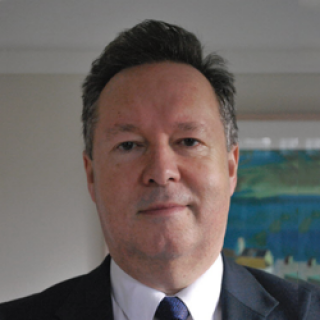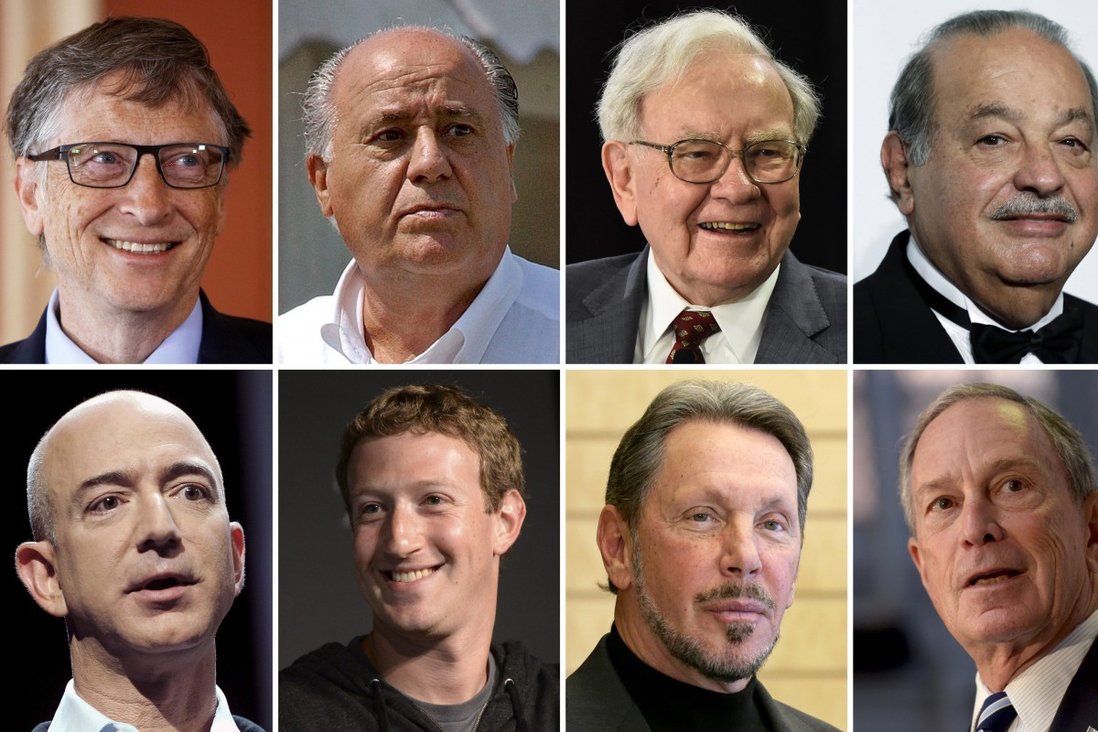www.aljazeerah.info
Opinion Editorials, May 2021
Archives
Mission & Name
Conflict Terminology
Editorials
Gaza Holocaust
Gulf War
Isdood
Islam
News
News Photos
Opinion Editorials
US Foreign Policy (Dr. El-Najjar's Articles)
www.aljazeerah.info
Governments Have a Chance to Fix Global Inequality. They Must Seize it. By David Brown May 4, 2020 |
 |
 |
|
| World's richest billionaires, 2021 |
Governments have a chance to fix global inequality. They must seize it
The world has gained one new billionaire every 17 hours in the past year, yet billions are living under the poverty line More progressive tax rates should be applied, so the rich can help pay for the pandemic
Thereís too much money in the world and itís creating problems. Itís the product of super-loose monetary policies pursued by the world authorities since the 2008 crash and in the wake of the pandemic.
Bond market bears fret that overheating has consequences for consumer prices, but it is the inflationary impact on financial asset prices that policymakers need to worry about in the long run.
Irrational exuberance is running amok, distorting the value of money and intensifying global
wealth inequality
. If the world is to have any hope of returning to normality, it needs reining in as soon as the pandemic has passed.The challenge for policymakers is to deliver a soft landing for global growth without causing another crash in the process. The clock is ticking for a safer and fairer future and world authorities have their work cut out.
There is hope on the horizon with a raft of new policy initiatives from US President
Joe Biden
. He has nailed his colours to the mast, earmarking up to US$4.2 trillion for government spending initiatives to repair Americaís broken infrastructure and boost employment, while building a fairer society in the process.It is not about injecting more money into the economy through scattergun monetary measures but targeting government spending at the right areas in real need of help.
The Federal Reserveís bond buy-back and money printing programme, launched after the 2008 crash, was intended as a much-needed safety net for the economy, but too much free cash found its way into financial markets and the pockets of those who could afford to take advantage and invest.
EVERY SATURDAY SCMP Global Impact Newsletter By submitting, you consent to receiving marketing emails from SCMP. If you don't want these, tick here By registering, you agree to our T&C and Privacy Policy
The monetary medicine definitely worked wonders for stock markets but the results for the US economy have been less impressive. Since the low point of the 2009 recession, average annual US economic growth has muddled along at a lacklustre 1.8 per cent while the US stock market performance has been stellar, with gains averaging around 40 per cent per annum over the same period.
It has made a lot of investors extremely rich while the vast majority of Americans have missed out on the gravy train. The challenge for the future is shifting financial opportunity away from the privileged few in favour of the disadvantaged masses. The global inequality of wealth is getting badly out of hand and must be addressed urgently.
We live in a deeply divided world and the gulf between rich and poor is becoming more acute. According to Forbesí billionaire list for 2021, the world has gained one new billionaire every 17 hours in the past year.
But, around the world, billions of people are still living below the poverty line, hungry or in poor health, lacking good education or
decent housing
, stuck in poor working conditions in low-paid jobs or thrown on the scrap heap of unemployment.The developed world may be gradually easing itself out of the coronavirus crisis, but the pandemic now seems to be sweeping through the developing world with a vengeance. With so much surplus money sloshing around, less-well-off nations are crying out for extra assistance.
Given how the pandemic has stretched government resources to the limit, itís a wonder that overseas aid spending managed to rise 3.5 per cent in real terms last year compared with 2019, reaching its highest level recorded, according to the OECD.
The trillion-dollar question is, who foots the bill? Biden is already hinting at hitting the rich with
higher taxes
to pay for his new spending commitments. US Treasury Secretary Barbara Yellen is angling for a global corporate minimum tax rate of 21 per cent to ensure companies pay their fare share. Other countries should follow suit.Attitudes are changing and more progressive tax rates should be applied to the rich to help pay for the pandemic. Property taxes should be raised at the wealthiest end of the market, tax havens closed and tax avoidance banned.
The world needs a universal financial transactions tax to tone down excessive market volatility and pay for global reconstruction. It wonít be easy to implement.
Governments have a duty of care to spread the benefits of recovery fairly through increased social transfers, increased public investment and wider job opportunities for all. With the right mix of sustainable policies, trend growth of 4.5 per cent is easily achievable for the world to share more fairly in the next few years.
David Brown is the chief executive of New View Economics
***
Share the link of this article with your facebook friends
|
|
|
|
||
|
||||||


